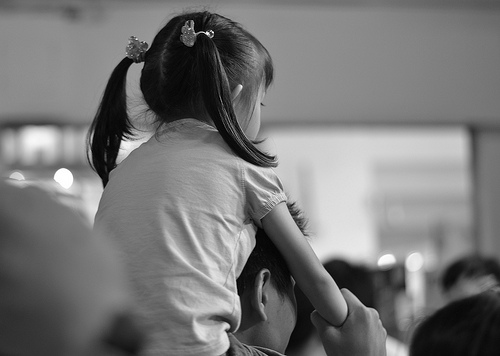- South Texas Students Meet Accordion Music Icons Los Tigres Del Norte In Edinburg Thanks To Khs America/Hohner Alianza Académica Initiative
- Fragile Planet Offers a Nighttime Wildlife Experience
- Falcons Soccer Off & Running
- Cameron County Receives Funds to Improve Two Parks
- Falcons Complete First Half of 32-6A
- School District to Help out Victims of California Wildfires
- Sand Castle Days Continued Despite Unexpected Weather
- Ready for District
- Discussion of Garbage Dumpster Rates, Agreements Between State & City on Highway Regulations, and More
- 31st Annual Shrimp Cook-Off is Right Around the Corner
New Year’s Resolution for Parents: Discipline, Not Punishment Expert says Discipline Brings Connection, Punishment Brings Fear
- Updated: January 24, 2014
Expert says Discipline Brings Connection, Punishment Brings Fear
by John Michaelson/TNS

For many people the words ‘discipline’ and ‘punishment’ are interchangeable, and while both may lead to behavior change, one expert says there’s a major difference in how each connects a parent and child.
Photo: John Ragai/TNS
AUSTIN, Texas – It isn’t among the list of the usual New Year’s resolutions, like quitting smoking or losing weight.
But one expert says a goal for 2014 of parenting through discipline instead of punishment can have life-long positive impacts.
Ingrid Bauer is a mother of four and an expert on communication within families.
She says there’s a big difference between punishment – like spankings or time-outs, that may just teach children not to get caught next time – and discipline, which can teach values and bring parent and child closer.
“Working with a child in partnership, you gain their trust,” she says. “And the motivation for them to behave in ways that you hope that they will, and that will benefit them, comes from inside them, whereas punishment, it’s all motivated primarily through fear of something external, rather than being connected to why they’re doing something.”
Bauer adds better than meting out punishment when a child misbehaves is to talk with the child, try to understand why he or she acted out and then, work together to change the behavior.
Bauer says using a discipline-based approach also works because, at the same time children are given expectations, they also learn that their needs matter as well.
“Having their parents really validate what’s important to them and knowing that they’re going to be considered, as well as their parents also telling them what’s important to them and what they’d like,” she explains. “And my experience is that over time when you build that relationship of trust naturally, if you let that flow of love happen, they want to contribute. It makes them feel good.”
Bauer leads workshops around the country on what she calls compassionate parenting, and is certified by the Center for Nonviolent Communication.
